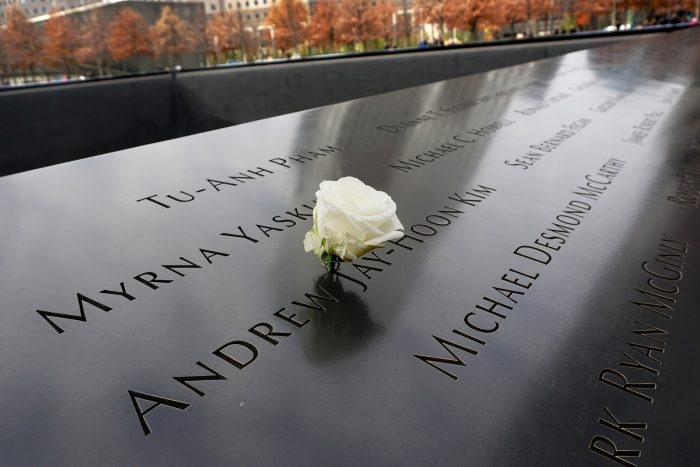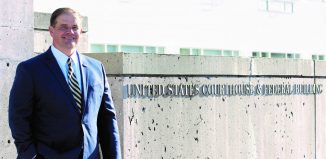Between You and Me: Ordinary life blasted away by the extraordinary events of 9/11
By Leah S. Dunaief

The way my parents remembered Pearl Harbor is the way I remember the assault on the twin towers the sunny, beautiful September day that changed our lives. In both instances, our nation was attacked. For my parents, the attackers were readily identifiable: a hostile country declaring war. For those of us who watched the planes crash into the iconic New York buildings, the culprits were evildoers. Who were they? Why were they intent on killing the passengers on the planes and the workers in the offices, all civilians?
At first, in our total unpreparedness, we thought it was an accident. The pilot had a stroke. The plane suffered a mechanical failure. The brain struggles to supply an acceptable explanation for the unacceptable. When the second plane hit, we knew it was an intentionally horrific act. How could this be happening? Where were our defenses?
I was on my way to HSBC Bank when the first plane hit. I had been told by the bank manager to come early because I was taking out a loan to buy the other newspaper in town, The Three Village Herald, and the closing was in the attorney’s office later that day. I got there a couple of minutes after they opened, and I was the only customer. The tellers were in the private staff room, watching the television and following the sounds, I wandered in just in time to see the second plane hit the South Tower. The two women in the room screamed as the manager yelled profanities. I had never before heard him so much as raise his voice.
We were riveted to the television screen, smoke and fire pouring from the buildings, and then the phone rang. The manager left the room to answer it, and when he returned, he informed me that I couldn’t leave. He had gotten the order to lock the doors of the bank to prevent a run, and he had immediately complied. I spent the next five hours in their company. The four of us stared at the television and saw the plane hit the building over and over as the networks continually replayed the footage. The sight will be forever imprinted on my brain.
A tormenting visual over all these 20 years is one that I actually did not see. In my 20s, I worked for Time-Life on the 32nd floor of their building on 50th Street and 6th Avenue, opposite Radio City Music Hall. I had been delighted by the view from the office windows, the cars like toys and the people like ants in the streets below. I know how life unfolded right after getting to work in the morning in such a location. Women went to the bathroom to put on mascara and fix their hair, little preparations for the day they didn’t have time to do before rushing to the subway. Men lined up at the coffee trolley, affectionately called “the roach coach,” in the hall for that cup of java and maybe a Danish to bring back to their desks to help power them through the morning. These are the ordinary activities in the first hour of work.
That’s what ordinary people were doing in the skyscrapers on Tuesday, September 11, when they died.
The killers took away those people from their wives and husbands and children and mothers and fathers when they flew the planes into the towers. Those workers are forevermore missing, as are the twin fingers pointing to the sky in the Manhattan silhouette each time I cross the bridge into town. And life goes on, as it always does, no matter what happens.
We attended a New York Press Association conference in Vermont two days later, and people flocked to us when we stopped for gas and they saw our New York plates, to express their sorrow and their support. People flew American flags everywhere. For at least six months, everyone held the doors open for those behind them. Shared tragedy evokes kindness.
We were all one that day.







